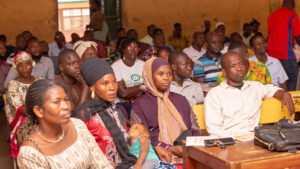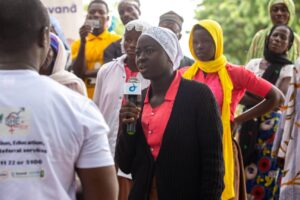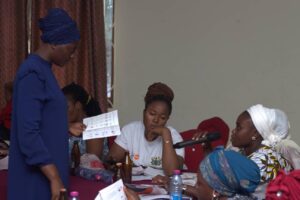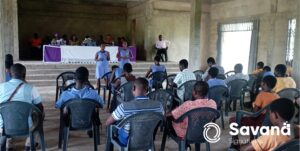Over the years, we have led the use of digital...
Read MoreRisking A Life To Bring A Life: The postpartum situation in Ghana
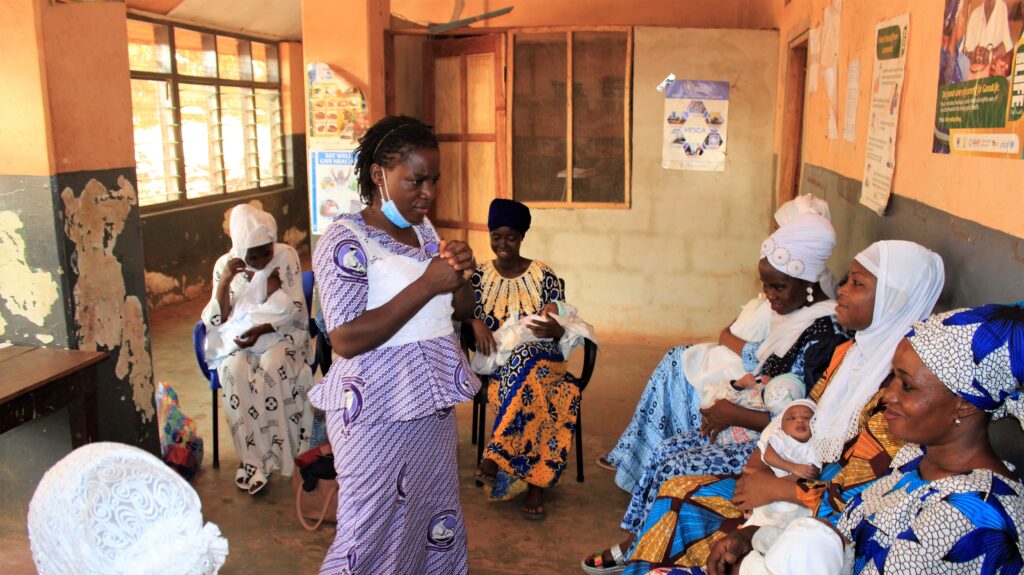
“The birth of a baby is a life-changing moment, one that is bound by love, hope and excitement, but it can also cause unprecedented stress and anxiety. Parents need strong health care and support systems, especially women, whose needs are too often neglected when the baby comes,” Dr Anshu Banerjee, Director of Maternal, Newborn, Child and Adolescent Health and Ageing at WHO.
Globally, a woman dies every minute from complications in pregnancy and childbirth, and more than half a million women die yearly due to pregnancy and childbirth related complications. Unsurprisingly, 99 per cent of these women live in developing countries.
In Ghana, maternal mortality rate is put at 310 per 100,000 live births, according to the Ghana Health Service. Majority of these deaths occur due to inadequate postnatal care, especially among rural communities. The figure falls short of WHO’s acceptable standard of 70 out of 100,000 live births.
Postpartum deaths driving maternal mortality
Studies have shown that postpartum related deaths are a key driver of Ghana’s maternal mortality rate, which remains a major public health challenge for health professionals. For instance, an audit of maternal mortality at the Komfo Anokye Teaching Hospital showed 53 per cent of the 101 deaths recorded in 2017 were due to direct causes, with post-partum hemorrhage as the leading cause with 49.06 per cent.
Of key concern to these health professionals are inadequate and or lack of postpartum care, especially in rural Ghana where even access to health facilities is a challenge. Rural women often face barriers in accessing the same quality of care as their urban counterparts. This is due primarily to lack of resources and healthcare professionals in these areas. The inadequacy of healthcare workers further exacerbates this issue and makes it difficult for women, especially pregnant and lactating mothers, to receive the care they need.

Some of the women in the intervention group at the Choggu Health Centre for their FPPC sesssion.
As aptly captured by Dr. Banerjee in March 2022 at the launch of global guidelines to support women and newborns in the postnatal period, “the need for quality maternity and newborn care does not stop once a baby is born”. The postpartum period is crucial for the survival of both the mother and newborn, and for promoting healthy development for both. It is also a very important period for supporting the mother’s physical and mental recovery, and overall well-being. Unfortunately, many women in Ghana, especially those in the rural areas, do not enjoy this ‘privilege’.
In Sagnarigu in the Northern Region, just as in most parts of Ghana, women who deliver at facilities within the municipality receive little to no education, clinical assessment or peer support tailored to their health needs even though the postpartum period is a high-risk timeframe for maternal deaths and complications. Routine health checks and education offered at health facilities within the municipality are mostly targeted at the babies, though new mothers could be at risk of losing their lives due to postpartum health issues.
The hope for postpartum care delivery
The situation requires an urgent need for an integrated postpartum care delivery model that is comprehensive and meets clinical care, education, and support needs of mothers. It is on the back of this need that the Focused Post-Partum Care (Focused-PPC), a Randomized Control Trial, was birthed in July 2021 to test and evaluate an innovative postpartum care, education, and support model in the Sagnarigu municipality.
Being implemented by Savana Signatures, the project is funded, in part, with support from the Indiana Clinical and Translational Sciences Institute, the National Institutes of Health (NIH), National Center for Advancing Translational Sciences, and Clinical and Translational Sciences Award. It is also being supported with funding from the Eck Institute for Global Health, University of Notre Dame.
The project is providing some 96 new mothers (intervention group) in four health facilities (Choggu, Bagabaga, Kalpohin and Kanvilli) within Sagnarigu, with postpartum care and adequate information for them to determine potential complications after childbirth. It fills the gaps that put many mothers at risk of losing their lives due to postpartum health issues.

A midwife taking one of the women through a clinical assessment at the Choggu Health Centre.
Under the project are two groups – the intervention and the control groups – that have been formed across the four health facilities. Each group meets at 1-2 weeks, 6 weeks, and monthly thereafter for up to 1 year postpartum. This follows the Ghana Health Service postnatal care schedule. For every session, trained midwives in the health centres provide the intervention groups with postpartum clinical assessments for mother (in addition to baby), education and support.
Already, significant impact is being made through this project. Seventy-two women in the intervention group now demonstrating knowledge of post-birth warning signs as compared to the women in the control group. Again, more than half of the women have exhibited positive postpartum behaviours by seeking healthcare as soon as they notice any postpartum danger signs, a key factor to preventing postpartum deaths. Others have opted for family planning because of the knowledge gained through the sessions.
Without doubt, by June 2023 when the project is expected to end, Focused-PPC would not only have changed the postpartum care delivery model in Ghana, but also, results from this project would help shape and scale up the Focused-PPC model of postpartum care.
By Stephen Kwabena Effah
Related Stories
Savana Signatures Re-Launches Exchange Prog. Between Ghana and the Netherlands
Savana Signatures has announced the revival of its educational exchange...
Read MoreFemale artisans empowered with digital tools to boost businesses
Referred to as Digital Champions, the beneficiaries who are leaders...
Read MoreSavSign TV Promotes AgooSHE+ Helpline in Mamprugu Moagduri
At the core of the AgooSHE+ Helpline's mission is empowering...
Read MoreEmpowering Healthcare Providers to Enhance Family Planning in Northern Ghana
We have empowered healthcare professionals to provide family planning services...
Read MoreEmpowering Adolescent Mothers to Safeguard their Future
Seeking healthcare and support, Owusua visited a local health facility,...
Read MoreOne-year postpartum care trial shows positive maternal health outcomes
One-year postpartum care trial shows positive maternal health outcomes Findings...
Read MoreSavana Signatures educates PWDs on GBV, HIV/AIDs
PWDs were introduced to the AgooSHE+ Helpline whey they can...
Read More

